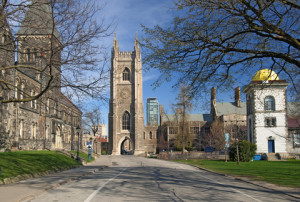Signs of a Bad College or University
Choosing the right college or university is a major decision that can greatly impact your future. Attend the right college and you can expect a great career and financial success. Choose the wrong college, and you may not learn the skills necessary for your chosen career path which will lead to a lack career satisfaction and lower earnings over the course of your working years.
High faculty turnover
High turnover is bad at any organization, but it’s particularly troubling when a college isn’t able to keep good professors and researchers. Poor work conditions, lack of sufficient compensation and incompetent administration often cause the best faculty to leave for better opportunities. What does this mean for students? More classes taught by overworked/underpaid adjuncts or graduate students rather than full-time professors. You may not think this will have much of an effect on your education, but it can impact not only your college experience but also your career.
High acceptance rates and low graduation rates
Colleges that have low standards and high drop-out rates usually don’t place a high priority on academics. Their main concern is making money as much money as possible off of students that are unprepared for college. Many of these students will take out loans to pay tuition and the college can let the lender worry about whether or not the student can actually afford to pay off the loan. You can look up a school’s acceptance and graduation rates at MyPlan.com.
Lack of accreditation
Accreditation provides legitimacy to a college or program. A lack of accreditation means that a college or academic program does not meet the standards set by it’s accrediting body. At best, your degree will have less meaning if your college or academic program lacks accreditation. Even worse, it could prevent you from obtaining a professional license or certification. You can find out the status of a university or academic program’s accreditation by visiting the university’s website or the website of the relevant accrediting body. To find your region’s accrediting agency, visit CHEA.org.
College or programs on probation
Probation or warnings mean that an institution or academic program has not met the standards set by it’s accrediting agency. This puts a program at risk of dissolution and a college at risk of closure. You should be able to find out about warnings or probation status in the same location where accreditation status is listed (see above).
Insufficient student services
The availability and funding given to student services, particularly career services, shows a school’s commitment to the success of it’s students. Some schools want to push students out with degrees, but don’t really care what happens to graduates when they hit the job market or go to graduate school. A good college or university will take pride in making sure students have a positive college experience and that graduates have the best career opportunities possible.
For-profit
Think very carefully before enrolling in a for-profit college. These universities often use aggressive tactics to attract vulnerable students. Just like any university with high acceptance and low graduation rates, for-profts often don’ t care about academic matters. Instead, they want to take advantage of the fact that lenders will loan substantial amounts of money to students without considering their likelihood of graduating or finding a job that would allow for loan payments. And despite what commercials might have you believe, many employers don’t feel that degrees from for-profit colleges are as good as degrees from traditional universities.
When choosing a college, watch out for the red flags listed above. Also know what questions to ask when choosing a college. A school should not be so desperate to attract and keep students that they compromise academic standards.



